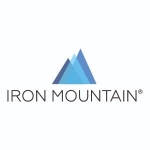We use the tool for multiple processes. We use it as a storage layer for files coming in from relational systems and data from real-time streaming systems. We also use it as a staging area for data scientists to consume.
The tool offers a big storage layer. The security aspect is quite good. In Azure, there's an option for soft deletes and policy management. This allows us to store only the most up-to-date data while everything else can be policy-managed. This makes handling and management easier.
If I had to nitpick, maybe the throughput could be faster - how quickly you can access data and how fast data can be written onto the Azure Data Lake Storage.
I have been working with the product for five years.
I rate the tool's stability a nine out of ten.
The tool is scalable as long as you pay more.
Support depends on what agreements you have with Microsoft. Many consultants and companies outside Microsoft can also provide expertise in maintaining and managing the Azure environment, especially the Data Lake environment. It doesn't have to be Microsoft. But if you're raising tickets with Microsoft to fix issues, they're pretty reasonable.
The tool's deployment is simple. I've worked with Azure Data Lake Storage in different scenarios. It can be on-premises, in the cloud, or a hybrid solution—it depends on the design. I've worked with it in both on-premises and cloud-based scenarios. For the last few years, as everyone's been transitioning to the cloud, we've mainly worked with cloud-based solutions.
Pricing is tricky because it depends on the solution you're building and the type of Data Lake storage you use—hot or cold.
The tool can be used by small and large companies. It's not restricted by price, so it's not just for high-end companies. Especially with cloud options available now, any company can potentially use it.
For competitors, from a cloud-based provider perspective, you have Amazon, Google, and other cloud providers. If you are building your custom solution, you can use traditional SAN drives on-premise for data lake storage, which becomes expensive. I'd say the main competitors of the cloud options are Microsoft, AWS, and Google. There are potentially other providers like Alibaba, but I haven't used them, so I can't provide more information about them.
I have experience integrating AI solutions with Azure Data Lake Storage and helped design some of them. AI solutions access data similarly to downstream systems like ETL tools. For cloud providers, the connections to AI tools are typically built into their products.
I rate the overall solution a nine out of ten. I definitely recommend Azure Data Lake Storage. I have recommended it for all the solutions I've designed and built for my clients. I would recommend it to anybody considering entering the data space or looking at building warehouses, AI solutions, etc.










